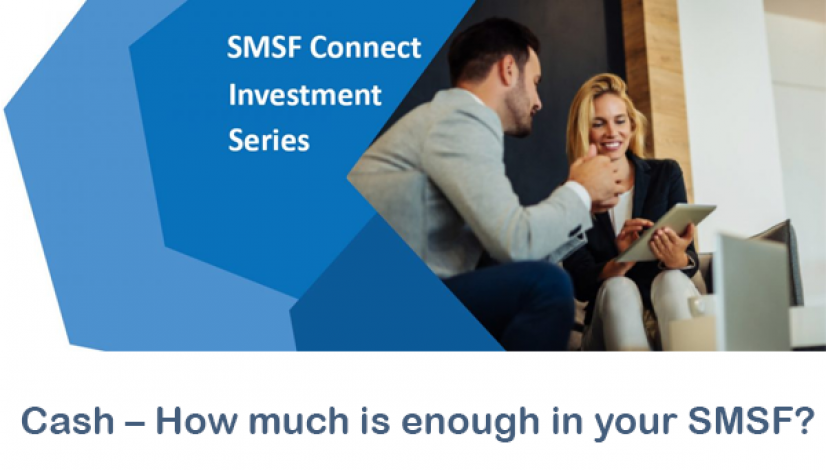Cash – how much is enough in your SMSF?
SMSFs are often criticised for holding too much cash in portfolios when compared with other superannuation funds or with managed funds that provide very little of their asset allocation to cash. Is this a fair criticism or are SMSFs and personal investment portfolios different from large superannuation funds?
Let’s start with some numbers that relate to SMSFs asset allocation. SMSFs are regulated by the Australian Taxation Office (ATO), which also processes SMSFs’ tax returns. As a result, there is a raft of statistical information available.
The most recent ATO Self-managed super fund quarterly statistical report – March 2019 shows that cash and term deposits account for 23% or $171 billion of the $747 billion SMSF sector and it is true this is high by comparison with larger funds. However, each SMSF will be different, with some above or below the 23% level.
So why are cash holdings generally higher in SMSFs? It could be the result of a number of reasons; including:
- As the number of members of a SMSF is a maximum of 4, SMSFs do not have the liquidity of funds with 100s or 1,000s of members, where the flow of contributions and income from the fund is constant and trustees of the SMSF may have taken the view that a higher level is a prudent cash holding.
- Known liquidity event in the future. In this case, trustees have planned for an outflow of funds – for example, a withdrawal due to a member leaving or a pension member needing to withdraw a lump sum.
- Not paying attention to mounting cash levels or
- Not knowing what to do and playing it safe
The first two above are events that are known and planned for and the result of the SMSF trustees being much more in touch with the fund members’ future needs and managing the fund’s assets accordingly.
The other two may be able to be remedied with better planning, administration and education. Let’s have a look at these two in a little more detail.
To read more about this visit the full article at Cash – How much is enough in your SMSF?
Article Reference: SMSF Connect Author: Ian Irvine




